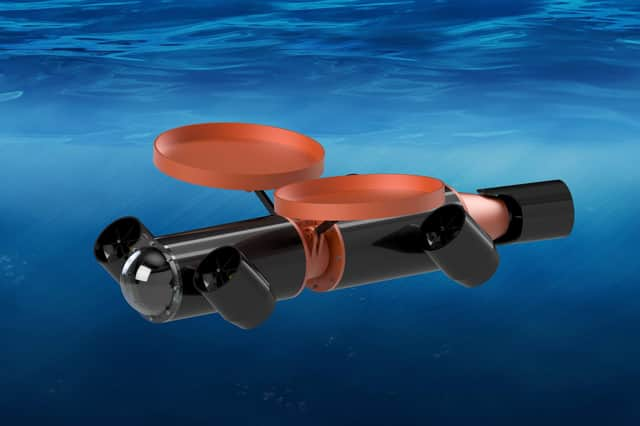Start-up behind ship-cleaning robotic tech gets on board at Heriot-Watt University


A marine sector start-up is developing an underwater robot that promises to slash fuel costs and the environmental impact for the global shipping industry.
ScrubMarine has been accepted into the inaugural cohort of Heriot-Watt University’s DeepTech LaunchPad, a pilot programme which aims to help entrepreneurs working in robotics, artificial intelligence (AI) and advanced engineering commercialise their ideas.
Advertisement
Hide AdAdvertisement
Hide AdThe build up of organic growth on vessels, known as biofouling, is a significant challenge to the world’s shipping industry and can cause damage to hull structures and propulsion systems. It can also increase fuel consumption by as much as 40 per cent.
Clyne Albertelli, founder of ScrubMarine, said: “In the vast ocean of innovation, ScrubMarine is committed to charting a cleaner and more efficient course for the marine industry. Our underwater robot, powered by deep-learning and supported by Heriot-Watt’s DeepTech LaunchPad, aims to scrub away biofouling challenges, reducing fuel costs and environmental impact. Together, we’re diving into a brighter and cleaner future for marine transportation.”
As part of the six-month pilot, the venture aims to further develop the complex navigation and control systems required for the real-world application of its robotic technology.
The DeepTech LaunchPad, supported by Barclays Eagle Labs through the Department for Science, Innovation and Technology Digital Growth Grant, is providing six organisations with access to tailored services, facilities and equipment within the university and the National Robotarium, the centre for robotics and artificial intelligence based at the institution’s Edinburgh campus.
Jamie Allan, Heriot-Watt University’s Deeptech Launchpad programme leader, said: “[This] marks an incredibly exciting step in strengthening Scotland’s innovation ecosystem and establishing Heriot-Watt as a global leader in commercialising deep technology research. Through this pilot programme, our six-strong cohort will gain access to world-leading facilities like the National Robotarium as well as our vast network of international industry connections, experts and alumni to accelerate their cutting-edge research toward commercial success on the global stage. We eagerly anticipate the fruits of this hands-on commercialisation experience and look forward to continued engagement with these innovators as they bring remarkable technologies to market across critical sectors like medical devices, food technology, robotics, and sustainability.”
Comments
Want to join the conversation? Please or to comment on this article.